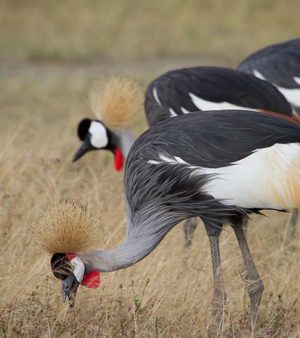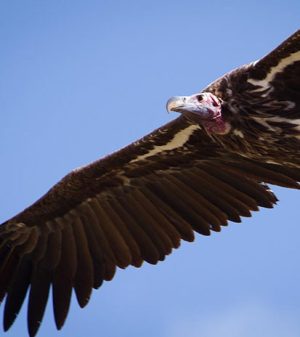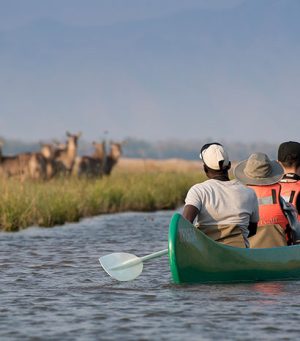Africa
MORE DESTINATIONS

MORE DESTINATIONS
ZIMBABWE
Zimbabwe is known as a great destination for walking
safaris you can also canoe the Zambezi in Mana Pools
National Park, many miles downriver from Victoria Falls,
starting below the Kariba Dam and continuing on into
Mozambique should you wish. It is also known as an
adventurous destination both on and off safari.
HWANGE NATIONAL PARK
HIGHLIGHTS:
Hwange National Park features a landscape of grasslands and mopane woods.
The park is located in the western region of Zimbabwe. This is the ideal habitat for lion prides, elephant herds and the African wild dog. In the northwest section of the park, the herds gather at the Mandavu and Masuma dams. At the dams you can search for wildlife from concealed lookouts. Bumbusi National Monument includes 18th-century ruins and pre-colonial rock carvings. In the southeast area, waterholes include the Nyamandhlovu Pan. Here the viewing of wildlife is done from elevated platforms.


MANA POOLS NATIONAL PARK
HIGHLIGHTS:
The pristine Mana Pools National Park and its ancient landscape in the floodplains of the Zambezi River, is a UNESCO World Heritage. The highlight at this park is to spend 3 days drifting the fast running river in kayaks. Mana Pools is rich in wildlife and provides visitors with the opportunity to get up close with many of the resident species. Specially trilling is to drift by large pods of hippos. The pools are also the home of crocodiles. The park’s other residents include lions, leopards, buffaloes, zebras and hyenas. The sighting of wild dogs and cheetahs is considered rare.
MATOBO NATIONAL PARK
HIGHLIGHTS:
The wildlife sanctuary of Matobo National Park is home to the black and white rhinoceros. The park is also a sanctuary for a variety of antelope species including the kudu, sable and eland. Leopards, baboons and an amazing diversity of bird life, including the highest concentrations of black eagle in the world live in Matobo. The Matobo National Park have trees and shrubs that are unique to the area. Vegetation ranges from the lichens of the desert-like hilltops to the copious growth of valley swamps.


MATUSADONA NATIONAL PARK
HIGHLIGHTS:
Matusadona National Park covers 1,400 km2 (540 sq mi) of flat plains and rugged mountains protecting a diverse flora and fauna. Its area encompasses a combination of pristine and rugged wilderness, which before the Kariba Dam was built and Lake Kariba created was very inaccessible. Due to the availability of grazing pastures on the lakeshore the park has experienced an increase in the populations of large mammal including those of elephant and Cape buffalo. Other species benefitiong from the abundance of grass are thje waterbuck, common zebra, and impala which in turn it attracts a large number of predators.
